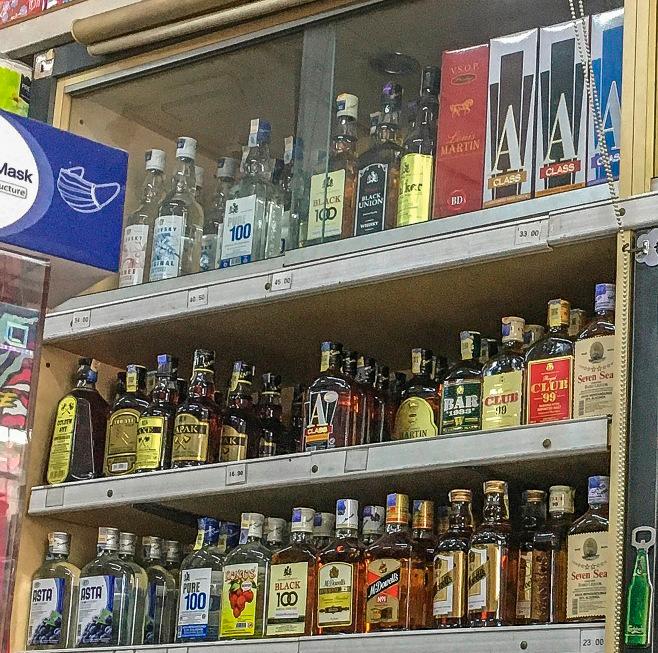The shop in Riyadh’s Diplomatic Quarter will only serve diplomatic staff, who have traditionally brought alcohol in sealed official packages called diplomatic pouches.
Saudi officials aim to combat the illegal alcohol trade with this store, given that alcohol has been banned since 1952, following an incident where a member of the Saudi royal family fatally shot a British diplomat while drunk.
The new store is set to open in a few weeks, but there are certain restrictions.
Envoys must register in advance and obtain government clearance. The store is exclusive to individuals aged 21 and above, and visitors must adhere to a proper dress code.
Additionally, customers cannot send someone else, like a driver, to make purchases on their behalf.
While there are monthly limits, they are not expected to be overly strict, as per the information in the document seen by AFP.
Patrons will be restricted to purchasing a maximum of 240 “points” worth of alcohol per month.
Each litre of spirits will cost six points, wine three points, and beer one point.
The shop is not expected to cater to regular foreigners in the kingdom without diplomatic status, who legally do not have access to alcohol.
While alcohol will become part of life in Riyadh, drinkers would be wise to be mindful of where they drink and how they behave afterwards.
According to current Saudi law, penalties for consuming or possessing alcohol can include fines, imprisonment, public flogging, and deportation for unauthorised foreigners.
Authorities are also planning a new regulatory system to allow diplomats to bring in specific quantities of alcohol, aiming to control the exchange of such goods.
Diplomatic staff have traditionally used their sealed pouches, which cannot be tampered with by host country authorities, to import limited amounts of alcohol.
These actions are part of the broader “Vision 2030” initiative led by Crown Prince Mohammed bin Salman to modernise and liberalise Saudi society.
Other Gulf countries have similar alcohol regulations.
However, the UAE and Qatar permit the sale of alcohol to non-Muslims aged 21 and above in designated venues like hotels, clubs, and bars.
There is no indication in the Saudi document that the government is considering adopting a similar approach.
Although Islam prohibits alcohol, Saudi Arabia previously had a more lenient stance towards its presence within the country.









